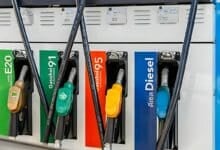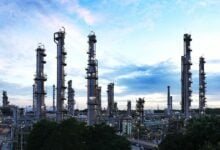Isuzu revs up green initiative with PTT union for clean fuel trials

Tri Petch Isuzu, Thailand’s Isuzu vehicle distributor, is joining forces with PTT Plc to test vehicles powered by a novel clean fuel. This initiative is aimed at supporting efforts to reduce the high carbon dioxide emissions from Thailand’s transport sector.
The transport and power generation sectors are the main contributors to over 60% of Thailand’s greenhouse gas emissions, as per Chulalongkorn University academics.
The joint venture by Isuzu and PTT forms part of the projects steered by Commercial Japan Partnership Technologies. This group, comprising major automakers like Isuzu Motors and Toyota Motor, is committed to endorsing technologies in line with global endeavours to realise carbon neutrality.
In 2021, Thailand declared its intent to attain carbon neutrality by 2050. This balance between CO2 emissions and absorption is a crucial goal for the country, stated Takashi Hata, the president of Tri Petch Isuzu Sales.
“We will test hydro vegetable oil [HVO], a biodiesel derived from used cooking oil.”
As per Isuzu, HVO holds the potential to be a green fuel for diesel engine vehicles, given its ability to decrease CO2 emissions by a staggering 93%.
Moreover, Isuzu is collaborating with Mitsubishi Corporation to research e-fuel, an alternative fuel that holds promise for use with internal combustion engine vehicles. E-fuel is a synthetic oil produced from a hydrocarbon compound and its production process aligns with clean energy development.
The creation of e-fuel involves using renewable power to separate hydrogen from water via hydrogen electrolysis and purifying CO2 captured from the air or factory emissions. Following this, the separated hydrogen and carbon are combined to create a hydrocarbon compound.
Isuzu is pursuing multiple avenues to achieve carbon neutrality, according to Hata. This includes the creation of innovative products and new clean energy types, as well as enhancing their operation management system.
The Yokohama-based automaker revealed plans to invest 1 trillion yen (240 billion baht) by 2030, with a portion of the budget earmarked for battery cell and electric pickup manufacturing in Thailand. This will establish the country as the company’s electric vehicle export base.
A segment of this colossal 32-billion-baht investment budget allocated for Thailand will be channelled towards projects aimed at achieving carbon neutrality and promoting digital transformation in the logistics sector.
Latest Thailand News
Follow The Thaiger on Google News:


























